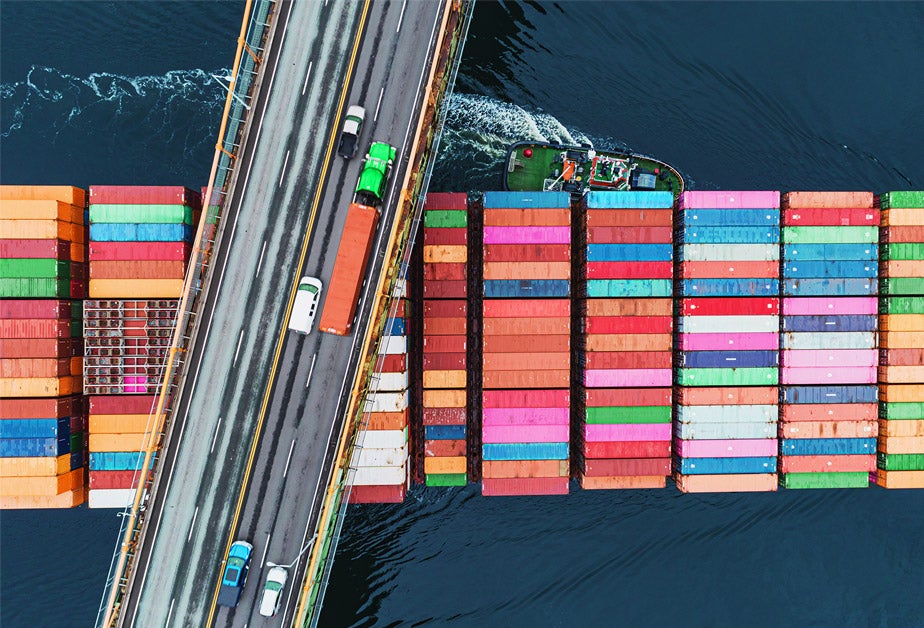In 2023, three potential updates to the Uyghur Forced Labor Prevention Act (UFLPA) could create significant challenges for manufacturers.
These updates should be of special interest, as the UFLPA has widespread reach and severe non-compliance penalties — penalties that will only grow harsher as the law expands in scope.
Understanding what the future of the UFLPA compliance could look like and proactively preparing for changes is vital to ensuring compliance, protecting your market access, and maintaining your brand reputation.
The UFLPA’s Current Business Impact
If ever there was a piece of compliance legislation that had teeth, it is the UFLPA. This law’s broad scope has created numerous risks for manufacturers.
In total, since being enacted in June 2022, U.S. Customs and Border Protection (CBP) has stopped 2,200 shipments, valued at more than $728 million USD. An estimated 60% of these shipments contained solar equipment. The remaining 40% may have contained goods from other high-priority sectors for enforcement, like electronics, cotton products, tomatoes, and apparel.
Put simply, the UFLPA has disrupted entire sectors. Businesses have been denied the opportunity to sell in the U.S. market, and with the following enforcement possibilities on the way, these business impacts are only expected to grow in 2023:
- An expansion of scope with respect to targeted goods (including critical minerals and other goods)
- Additions to the UFLPA entity list
- Enhancements to the CBP’s ability to detect goods made with Uyghur forced labor
Download Assent’s UFLPA Handbook: How To Prevent Supply Chain Disruption to see how you can implement an effective due diligence program and avoid supply chain disruptions.
Expanded Scope & the Global Automotive Industry
The UFLPA’s expanded scope and enhanced enforcement could severely impact the automotive industry. A report from Laura T. Murphy and a team of researchers illustrates why.
The six-month investigation revealed unsettling and expansive links between Western car brands and Uyghur labor — links that can be found in everything from electronics, to car frames, engine casings, and hood decals. In total, the report names more than 200 companies that have potential direct or indirect links to the Xinjiang Uyghur Autonomous Region (XUAR). In fact, If you have bought your car within the past five years, it’s likely that some of its parts were made with Uyghur labor.
This entangled connection is due in part to the Chinese government’s decision to shift raw materials mining and processing and automotive parts manufacturing to the XUAR. The widespread use and demand for these materials have essentially made international supply chains captive to forced labor.
“Critical minerals” are minerals that are considered to be essential to U.S. economics and national security and have a supply chain that’s vulnerable to disruption. Due to the fact that a significant portion of critical minerals — like nickel, cobalt, copper, and lithium — are processed in China (including the XUAR), the CBP is under pressure from U.S. lawmakers to screen imports of critical minerals originating from China for UFLPA violations.
These critical minerals, therefore, present new compliance risks for importers, alongside the growing list of goods known to be made using forced labor in XUAR.
An Expansion of the UFLPA Entity List
The UFLPA Entity List is a list of entities in the XUAR that mine, produce, or manufacture — wholly or in part — any goods, wares, articles, and merchandise with forced labor. The UFLPA establishes a rebuttable presumption that goods made wholly or in part by an entity on the UFLPA entity list are prohibited from U.S. importation. When expanded, manufacturers will need to undertake an immediate review to ensure their supply chain has no connection to newly listed entities and that they remain UFLPA compliant.
In their 2022 Annual Report, the Congressional-Executive Commission on China recommended that the Forced Labor Enforcement Task Force regularly update and expand the UFLPA Entity List. In fact, the task force indicated that it intends to update the list “multiple times per year.”
In August 2022, the CBP’s Trade Chief suggested that they are turning their attention to expanding the entities list to put a larger number of trade partners on notice for Uyghur forced labor. Once this list is published, it enters into immediate effect, impacting businesses with supply chain links with these entities.
CBP Detection Enhancements
The CBP’s ability to enforce the UFLPA depends on its funding. The 2023 U.S. Department of Homeland Security (DHS) funding package, which was passed in December, provides $101 million USD to support efforts to prevent the importation of goods made with forced labor. This is a 108% increase ($51 million USD) over FY22 levels — a transformative sum. It reflects the high level of resources the CBP needs to sustain its new risk posture of “guilty until proven innocent.”
This funding will support the hiring of 300 additional positions at the CBP, including trade enforcement personnel, and will fund UFLPA-specific technology enhancements to assist the CBP in identifying and seizing goods made with forced labor.
Additionally, the ability to detect and identify goods made with forced labor is integral to the CBP’s enforcement of the UFLPA. That is why the CBP is assessing new technologies and approaches that can be used to identify and trace goods made with forced labor — specifically those that support enhanced visibility into trade networks and supply chains that source goods made with forced labor.
This month, the CBP published a notice in the Federal Register for the launch of a pilot to test and develop a solution that will obtain “deeper insight into the legal structure of ‘who is who’ across the spectrum of trade entities, and to understand more clearly ownership, affiliation, and parent-subsidiary relationship.”
By testing the use of a universally recognized number, known as a Global Business Identifier (GBI), for the manufacturers, sellers, and shippers of merchandise to the U.S., this pilot aims to “develop a systematic, accurate and efficient method for the trade to report, and the US Government to uniquely identify, legal business entities, their different business locations and addresses, and their various functions and supply chains roles.”
Although the UFLPA is not mentioned in the announcement, the identity of foreign parties involved in an import transaction is highly relevant for UFLPA enforcement. As such, any developments in the data that importers and licensed customs brokers will need to provide to the CBP on foreign parties in the supply chain of imported goods are expected to enhance their ability to better connect imported goods to the XUAR.
In short, manufacturers will need to be more vigilant in ensuring their supply chain is free of forced labor. As the CBP’s capabilities grow, the margin for error will shrink, putting companies at greater risk of having their goods denied U.S. market access.
See Deeper Into Your Supply Chain
The UFLPA isn’t the only law out there with stringent requirements and severe non-compliance penalties. With the ESG landscape growing and evolving, it’s more important than ever to have a greater understanding of your supply chain and what could be hiding within it.
With Assent’s ESG solution and technology like Enhanced Supplier Screening, you can dive deeper into your supply chain, allowing you to better understand the relationship between your tier one suppliers and detect hidden risks proactively.
To learn more about how Assent will help you meet your UFLPA requirements and broader ESG needs. Contact us.










